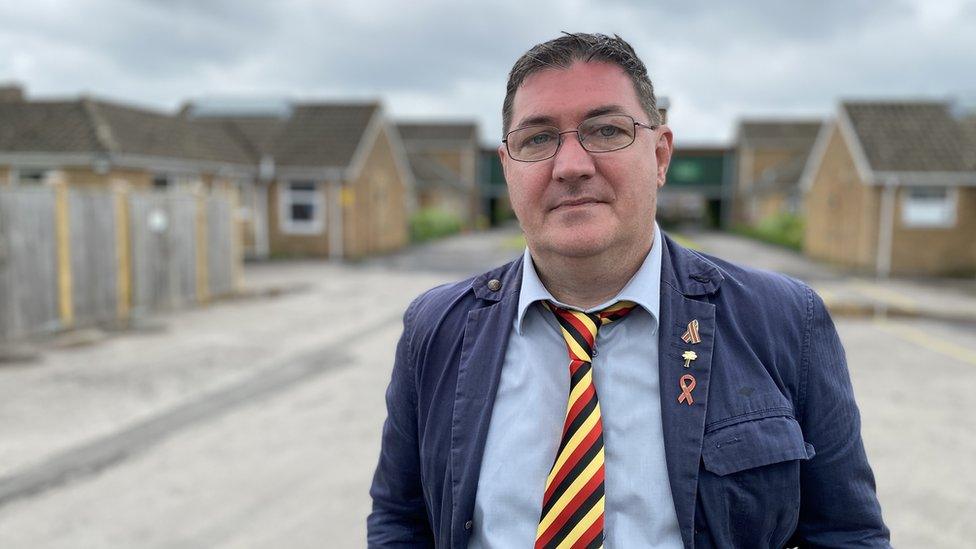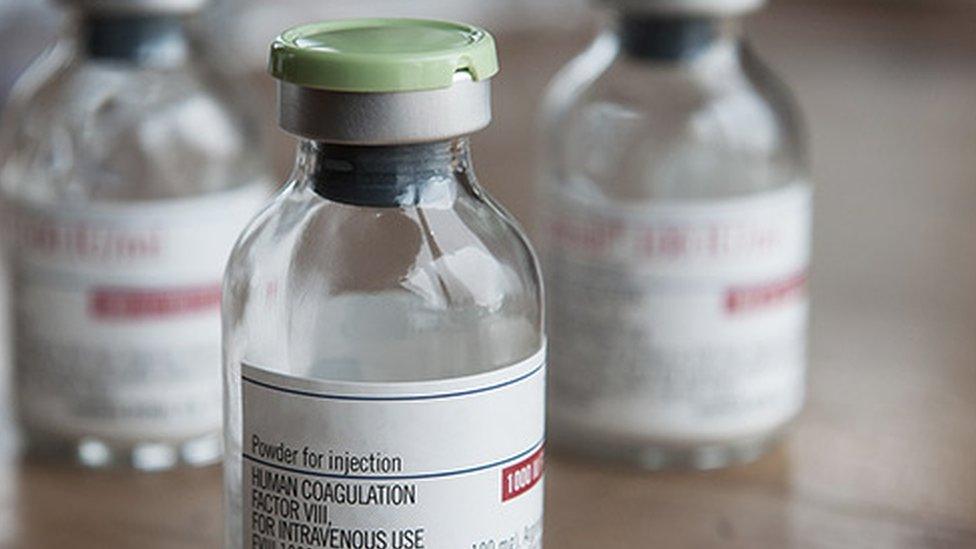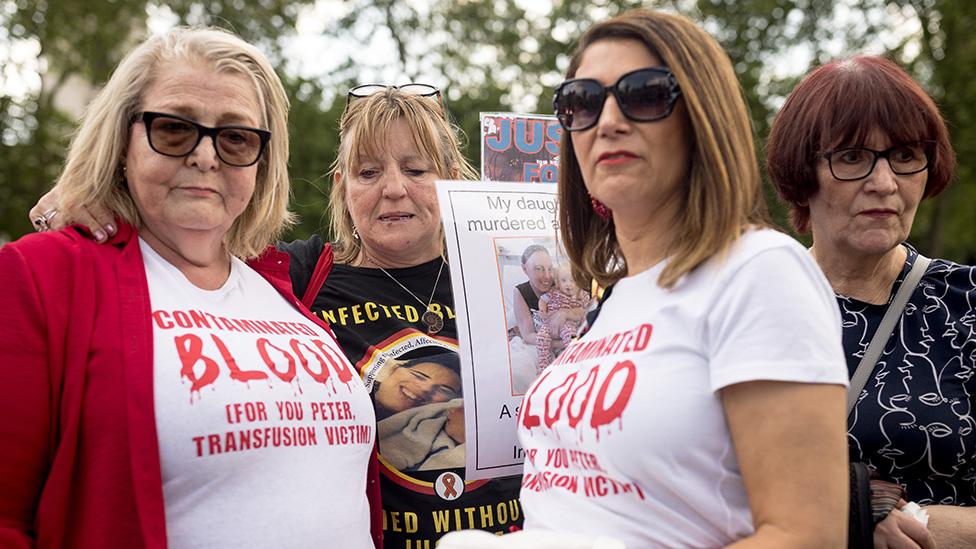Contaminated-blood inquiry: Former Health Minister Clarke denies responsibility
- Published
Lord Clarke: "I wasn't the blood products minister"
Lord Clarke has told an inquiry he was "not responsible" for blood products during his time as health minister.
About 3,000 people died after being given blood products containing HIV and hepatitis C in the 1970s and 1980s.
And Lord Clarke - Conservative Health Minister 1982-85 and Health Secretary 1988-90 - is the first senior health minister from the time to testify during the inquiry into the scandal.
But he said the emerging controversy "hardly ever came across my desk".
Questions have been asked about what the government knew about the risks of the blood treatments and whether patients were given sufficient warning.
Victims of what has been called the biggest treatment disaster in NHS history were given a clotting agent called Factor VIII which had been imported from the US, where it was made from plasma donated by prisoners and other groups at risk from blood-borne viruses.
By the mid-1980s, once HIV was better understood, the blood products were heat-treated to kill the viruses - but not before thousands of people were infected.
Among them were dozens of young haemophiliacs at a boarding school in Hampshire who died after contracting HIV.
Haemophilia impairs the body's ability to clot blood and has no cure.
'Not true'
Lord Clarke told the inquiry: "As the tragedy with the haemophiliacs developed, I was aware it was there.
"From time to time, usually on my own instigation, I got on the edge of it.
"I did not call meetings on it.
"I was never the minister directly responsible for blood products.
"I was never asked to take a decision on blood products.
"I never intervened to take a decision on blood products.
"I did intervene or get involved in discussions a bit when I wanted to be reassured.
"When I arrived [as health minister], the idea that blood products was a very big part of the department's activity is simply not true."
And it was not the job of ministers to intervene or impose a personal decision on what treatments patients were given, Lord Clarke said.
Delay apology
As late as November 1983, the government said it was not conclusively proven that HIV could be transmitted through blood products. By then, officials were already aware of deaths linked to the treatment.
Lord Clarke said he accepted a share of personal responsibility for delays to the production of a public information leaflet about who should and should not donate blood. Those at high risk of contracting Aids, including homosexual men, were to be discouraged from donating.
"It's a pity it look so long," he told the inquiry.
But he said no-one predicted the scale of the problem and although no-one was ignoring the risk at the time, he said he also didn't want to "cause public panic over blood transfusions".
Lord Clarke was also shown evidence of minutes from a sub-committee of the Committee on the Safety of Medicines in July 1983.
Despite warnings from a leading disease expert over the risks of importing infected blood plasma from the US, the committee concluded there wasn't enough alternative supply from elsewhere to recommend stopping the imports.
"It's a pity they reached that conclusion", he said, adding that he was "surprised" the decision was not run past government ministers.
Pay compensation
Lord Clarke's evidence marks a significant moment for survivors and their relatives, who campaigned for years to bring about the inquiry, saying the risks of the blood products were never explained and the scandal was covered up.
Earlier this year, then Health Secretary Matt Hancock became the first serving cabinet minister to give evidence, telling victims he wanted "to make sure their voices are heard" and promising the government would pay compensation if the inquiry recommended it.
Led by former High Court judge Sir Brian Langstaff, the public inquiry has been examining the circumstances of the contaminated-blood scandal since 2018.
Hundreds of people infected with HIV or hepatitis C and their family members have given evidence at sites across the UK.
Evidence hearings are due to continue next year with the final report expected to be published in 2022 or 2023.
- Published21 June 2021

- Published21 May 2021

